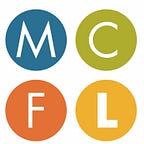Local Suffragists Form California’s First Women’s Undertaking Company
by Marilyn L. Geary
During the struggle for voter rights, suffragists looked for ways to advance women’s causes and prove their capabilities. Forming businesses owned and operated entirely by women helped accomplish that goal. In 1908, a group of suffragists founded the California Woman’s Undertaking Company, the first such business run entirely by women in California. Founders included Mrs. Lillian Harris Coffin, a Mill Valley resident and president of the Equal Suffrage League of San Francisco. Other women founders included Mrs. Mary Cornwall, Mrs. Emma Shertzer, Mrs. Ella S. Mitchell, and Mrs. Elizabeth Ruth, all ardent suffragists.
The Mill Valley Independent (1) announced the company’s formation in March 1909, reporting that stockholders included several women from Mill Valley and that all the prominent women’s clubs of San Francisco and around the Bay had endorsed the new endeavor. No men would be connected with the venture, except an attorney and the hearse drivers. The women promoted their services as a kinder, gentler approach to undertaking. The Independent reported that:
“The plan is to follow out the old Egyptian and Hebrew idea that women, and only women, should care for the dead. The tenderness, gentleness and respect that we wish to secure for our loved ones who have passed away can only be assured, say the women reformers, through a capable, refined and scientific woman undertaker and embalmer.”
That capable woman undertaker was Elizabeth Ruth, who had gained undertaking experience in New York. She and founder Emma Shertzer planned to manage daily operations in the three-story building housing the funeral parlor. On February 8, 1909, an article in the Sacramento Star (2) reported that when Elizabeth Ruth was denied an undertaking license in San Francisco, the five women, prominent in local social, club and suffragist circles, agreed to support her in an Oakland undertaking business. In an interview, Mrs. Mary Cornwall, the company’s president, “whose presence graces nearly every function of San Francisco’s smart set,” clarified the women’s goals. “Ours is not a money making proposition. This is not our idea or our object. We are entering upon this in a spirit of reform…” She went on to decry the exorbitant costs of death, claiming that the California Woman’s Undertaking Company would provide services humanely and at the least possible cost.
Mrs. Cornwall described the progressive approach the women planned to take with their funeral parlor. “We shall do away with everything gruesome and sombre. In place of the conventional blacks, so deeply depressing, we will use only shades of gray and lavender.” The undertaking parlor was to be decorated in beautiful tones of gray to accompany the gray hearse and drivers’ gray coats and hats. Mrs. Coleman continued,
“The rooms where the services are held will be warm and cheerful instead of cold, damp and dark. In fact we shall put forth every effort to make this final ceremony one not to be dreaded-one that will brighten instead of intensify the sorrow for loved ones gone.”
The women’s efforts defied society’s conventional wisdom regarding acceptable female behavior. On announcing the company’s incorporation on October 28, 1908, the San Francisco Examiner (3) could not restrain from trivializing the society women’s endeavor. Its headline read: “Hearse Will be So Pretty That None Will Object to Taking Ride.” Continuing to detract from the women’s serious business, the male reporter concocted rhymes and slogans he thought would amuse readers:
“There are many things worse
Than a ride in our hearse,
As it glides on thoroughfares shady;
First we pack you in ice,
Then embalm you so nice!
Why, who wouldn’t die for a lady?”
He went on to marvel at the endless possibilities for advertising, creating ditties meant to bring chuckles, but deeply undermining the women’s efforts:
“We’d hardly like to ask it,
But will you try our casket?”
and
“We bury women and children sadly;
We bury horrid men most gladly.”
Accustomed to struggles, these women had greater obstacles than men’s condescending attitudes. Neighbors objected to the presence of an undertaking parlor in their Oakland neighborhood. The Board of Public Works initially deferred a decision on a permit based on residents’ vehement protests. When the women changed their proposed location from a residential neighborhood to 660 Fourteenth Street, across the street from the public library, the board of commissioners approved their application. Despite the location change, protestors, including directors of the library, the First Unitarian Church and the Young Women’s Christian Association, along with numerous neighbors who swore they would leave the area if the proposal were approved, persisted with a petition. Announcing the permit’s approval, the Oakland Tribune (4) reported that all work would be done at night and quoted one of women saying “Nothing will suggest that there is a corpse in the house.”
After receiving its permit, the California Woman’s Undertaking Company formally opened for business in April 1909. The business does not seem to have lasted long, disappearing from newspaper death notices in 1912. Despite its demise, some aims of the company’s progressive founders live on today: forms of bereavement are much less severe, celebrations of life for deceased loved ones are widely accepted, and women may now start businesses of any type without suffering ridicule in the media.
By the time the company closed, thanks to the hard work of these suffragists and many others, Proposition 4 had passed, granting women the right to vote in California. One of that campaign’s slogans made clear the suffragists’ demands:
“For the Long Work Day
For the Taxes We Pay
For the Laws We Obey
We want Something to Say!”
The suffragists had achieved the right to vote in California. Now came the push for those rights at a national level.
1. Mill Valley Independent, Mar. 19, 1909, page 1.
2. Sacramento Star, Feb. 8, 1909, page 5.
3. San Francisco Examiner, Oct. 28, 1908, page 1.
4. Oakland Tribune, Mar. 24, 1909, page 14.
Originally published at https://annetkent.kontribune.com.
